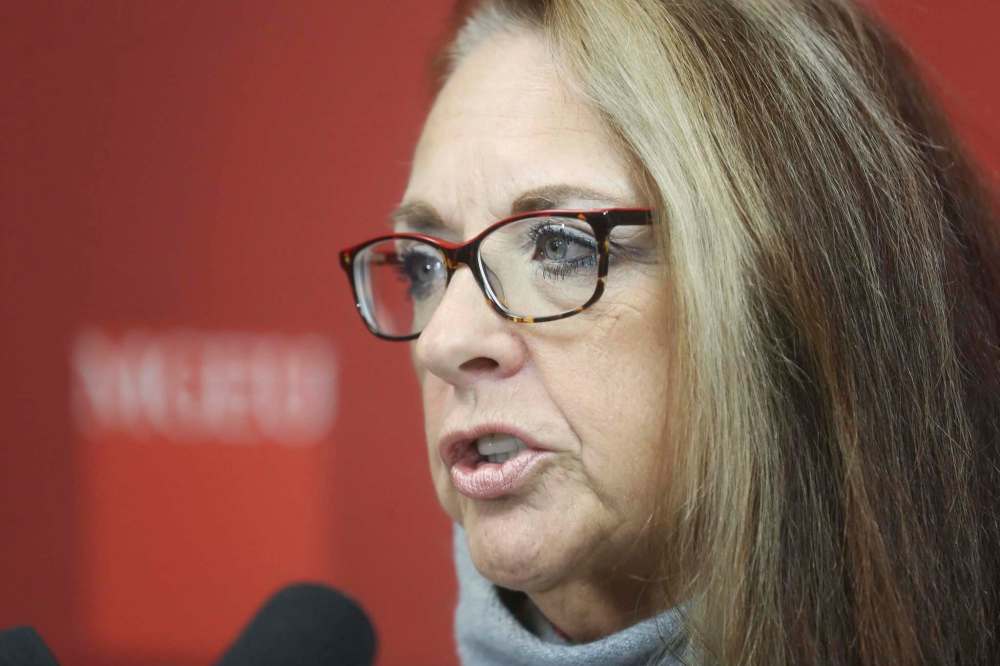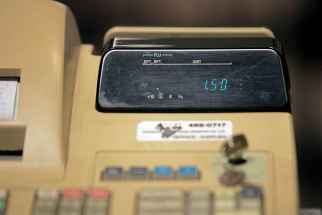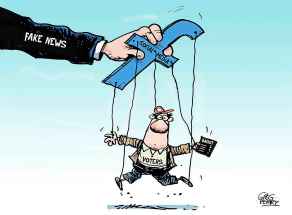MGEU seeks to push privatization into election spotlight
Read this article for free:
or
Already have an account? Log in here »
To continue reading, please subscribe:
Monthly Digital Subscription
$0 for the first 4 weeks*
- Enjoy unlimited reading on winnipegfreepress.com
- Read the E-Edition, our digital replica newspaper
- Access News Break, our award-winning app
- Play interactive puzzles
*No charge for 4 weeks then price increases to the regular rate of $19.00 plus GST every four weeks. Offer available to new and qualified returning subscribers only. Cancel any time.
Monthly Digital Subscription
$4.75/week*
- Enjoy unlimited reading on winnipegfreepress.com
- Read the E-Edition, our digital replica newspaper
- Access News Break, our award-winning app
- Play interactive puzzles
*Billed as $19 plus GST every four weeks. Cancel any time.
To continue reading, please subscribe:
Add Free Press access to your Brandon Sun subscription for only an additional
$1 for the first 4 weeks*
*Your next subscription payment will increase by $1.00 and you will be charged $16.99 plus GST for four weeks. After four weeks, your payment will increase to $23.99 plus GST every four weeks.
Read unlimited articles for free today:
or
Already have an account? Log in here »
Hey there, time traveller!
This article was published 02/07/2019 (2356 days ago), so information in it may no longer be current.
Manitoba’s largest union is undertaking an ad blitz to put the potential privatization of liquor sales on the 2019 election agenda — even though the PC government insists it has no such plans.
"It’s not necessary. The model’s here, it’s working,” said Michelle Gawronsky, head of the Manitoba Government and General Employees’ Union. "There’s nothing broken — don’t fix it."
Last month, the MGEU revived its 2015 campaign called Keeping Liquor Public, earmarking $250,000 for social-media and radio ads, along with a petition.

The prospect of private liquor sales came up ahead of the 2016 provincial election, and labour groups have complained about small-scale changes to the Manitoba Liquor & Lotteries Corp. since the Pallister government took office.
Gawronsky said MGEU got concerned in April, when Crown Services Minister Colleen Mayer wrote asking MLL to “engage with the private sector to identify opportunities for increased participation in the liquor retail and distribution sectors,” as part of a list of eight priorities.
Letters on expanding private-sector role in liquor sales
In May, the province closed Churchill’s Liquor Mart, moving alcohol sales into the local grocery store. The town council protested job losses, but MLL argued Nunavut’s emerging liquor industry drove down its customer base.
Gawronsky fears more Liquor Marts will be closed across the province, to the benefit of supermarket chains headquartered outside Manitoba. Last fiscal year, liquor sales put $284 million in profits into provincial coffers.

“The profit made from this goes to the services that Manitobans rely on. We need to keep our liquor public, and keep that profit in our province,” she said.
Mayer was not available for a Tuesday interview, but her spokeswoman stressed the MLL letter does not mean privatization.
“Manitobans already enjoy the benefits of a public-private partnership model for the sale of liquor in Manitoba. As we have said previously, there are no plans to go to a fully private model and privatize Liquor Mart stores,” wrote Caitlin MacGregor.
“As we have said previously, there are no plans to go to a fully private model and privatize Liquor Mart stores.” Caitlin MacGregor, Crown Services
She noted MLL’s private vendors made up almost half of sales in the last fiscal year, through 250 hotel beer vendors, 170 liquor vendors, and eight specialty wine stores.
Pallister rejected liquor-store privatization in 2015
Manitoba Premier Brian Pallister rejected the idea of privatizing alcohol sales in his first mandate.
In late 2015, as leader of the PCs in opposition, Pallister said he would only commit to 10 policy planks, and privatizing alcohol sales was not among them.
“If you go down that road, you haven’t got time to address these other issues,” Pallister said at the time.
The Manitoba Liberals had pledged to switch to private retailers at the time, under then-leader Rana Bokhari.
The party now supports the Manitoba Government and General Employees’ Union campaign to keep liquor sales under Crown control, as does the provincial NDP.
— Dylan Robertson
Yet, Gawronsky argued that makes it unclear why Mayer asked MLL to look into the boosting the private sector’s role in liquor sales and distribution. “Privatization is privatization, when you open that door,” she said.
In March, MLL boosted the security presence at several Winnipeg Liquor Marts, after the Free Press reported on a rise in thefts and confrontations with alleged offenders. Gawronsky claimed it shows a pitfall in private operations.
“How are the mom-and-pop stores, the very tiny stores, able to provide the protection for themselves, as well as for the other customers?” she said.
The union leader’s goal is to get Manitobans talking about the issue in the lead-up to the Sept. 10 provincial election.
MGEU is running the campaign with support of other labour unions representing nurses and bus drivers (though none have funded the drive yet).
The ad blitz is taking place before advocacy groups face campaign limits, when the writ period starts around early August.
Under fixed-election date legislation, union groups would have to limit advertising during the three-month blackout period, but this doesn’t apply for early elections, such as the 2019 vote.
dylan.robertson@freepress.mb.ca












